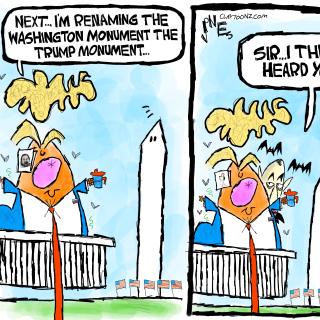Advertisement
Healthcare should be about keeping people alive and healthy. Period. It should have nothing to do with business school graduates getting rich or ridiculously large corporations amassing political power. Alas, America’s political elite have no problem with individuals and companies profiting from their constituents’ accidents and general ill health. In fact, they actively assist those entities in their endeavors; the taxes on millionaires and billionaires are inexcusably low, the government is banned by legislation from negotiating for lower drug prices, medical students have to pay exorbitantly high tuition fees, and there has been no movement towards a single-payer program. Unfortunately, those aren’t the only issues. Having a private health insurance system creates problems that directly interfere with the care patients receive.
My daughter recently had a playground accident that resulted in a broken arm. Her bones had moved far enough out of alignment she required surgery to remedy the injury. I took her to the ER at Mount Carmel East as that was the closest. After three and a half hours, we knew she had a broken arm and that we were being transferred to Nationwide Children’s Hospital for specialized care. It should be immediately obvious that we spent an awful lot of time waiting around. To the ill-informed Americans who say a single-payer system would lead to huge waiting times like European countries, I say this; Europeans do not have to wait uniquely long times for care and American hospitals already have long waiting times. They are primarily caused by large, rapidly growing populations and the humane system of triage. Patients with non-serious, non-life threatening ailments should go after seriously injured individuals, regardless of the time they arrived. I had no problem when a young man coughing up handfuls of blood received care before my daughter even though he arrived at least twenty minutes later. It’s what decent people selflessness. Care outside of the ER (surgery, chemotherapy, physical therapy) is no different. Everyone around the world must wait for an appointment.
There is actually good reason to believe we would have been through the hospital in less time under a public system. We wasted approximately thirty minutes with administrators and other pointless office staff. They needed to see ID and an insurance card, had to triple-check our address, find out where my wife worked (she was not present at the time), ask if we worked part- or full-time, etc. etc. etc. etc. etc. What in the world does any of that have to do with fixing a child’s broken arm? Before anyone offers a response discussing the mechanics of the private health insurance system, I will provide the only accurate answer; nothing. My wife’s occupation doesn’t affect whether or not my daughter will react to anesthesia, nor do the hours I work have an impact on her ability to sit still during an examination. Eliminating that hassle logically leads one to believe the time spent in hospitals would decrease.
Upon arrival at Nationwide Children’s Hospital, we waited for twenty minutes in the registration line. It then took another ten minutes to sign in and explain both the injury and the transfer request. Our nurse at Mount Carmel East had called ahead but we still needed to go through the registration process as though the hospital had never heard of us. If only there was a national network that would make transfers and access to medical records quick and simple… A single, federal health system would eliminate the need to register at every single hospital or clinic. All doctors and nurses nationwide would be able to find a patient’s medical history. Precious time would be saved, benefitting both patients and medical staff.
To bring an end to my daughter’s story, she was checked into a room more than eight hours after arriving at the first ER and had surgery the next morning before being released in the evening. In the middle of all of that, I had to yet again explain how she injured herself, show the insurance card, and answer personal questions unrelated to healthcare. I have no trouble admitting that my tone was fast getting less and less pleasant with the billing staff who were both figuratively and literally getting in between me and the medical staff.
In the middle of this complaining, I must take time to sing the praises of every nurse and doctor we came across. At both hospitals we had medical staff who could not have been friendlier or more helpful. They made my five-year-old daughter feel at ease while doing everything they could to make my wife and I comfortable too. They were extremely generous with gifts, and were equally generous with their time and patience. From the nurse who takes vitals through to the surgeon himself, we cannot make a single complaint and I hope they know how much they are appreciated. The care itself was also fantastic, as were the facilities. My daughter experienced little pain throughout her time in the hospital and is already well on her way to a full recovery. The resources and services were second-to-none while the buildings themselves were clean, convenient, and comfortable. But as amazing as the medical staff were, there’s no reason to believe other countries don’t have the same level of care or that the quality would drop if the staff were paid by the government instead of greedy corporations.
The money saved on paperwork and administrative staff would first lower the burden on the average taxpayer. Then some of the savings could go directly to nurses who, no matter how much they currently make, are grossly underpaid. That would return non-financial benefits in the form of increased morale and productivity among existing staff, and more new nurses who would help to bring down waiting times even further. There is plenty of talk about the “big picture” benefits of a single-payer system (elimination of personal debt, moves towards more cures instead of treatment) but these smaller issues deserve to be a part of the conversation too. More often than not, the smallest changes bring the biggest and most immediate improvements.



